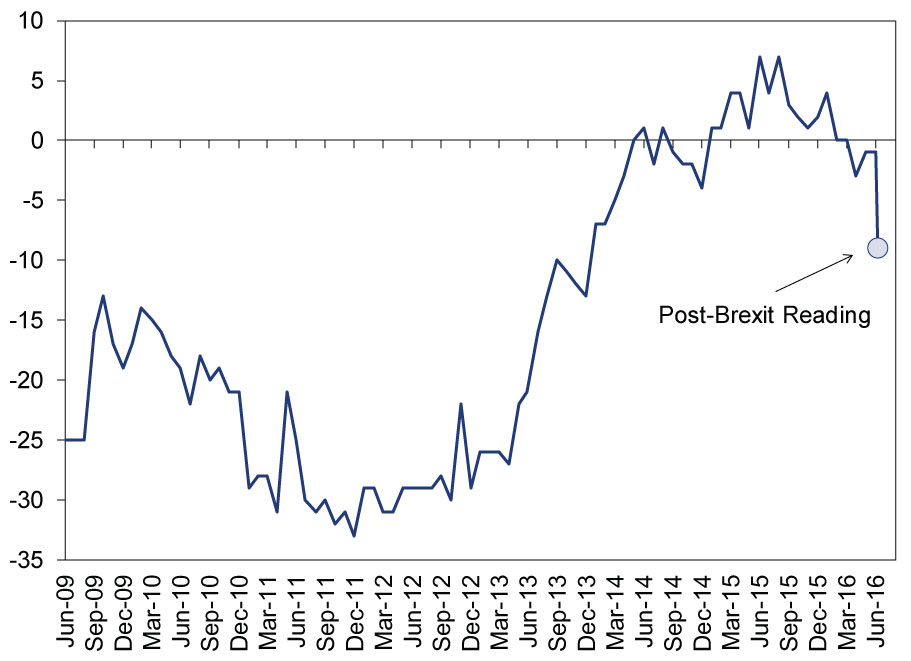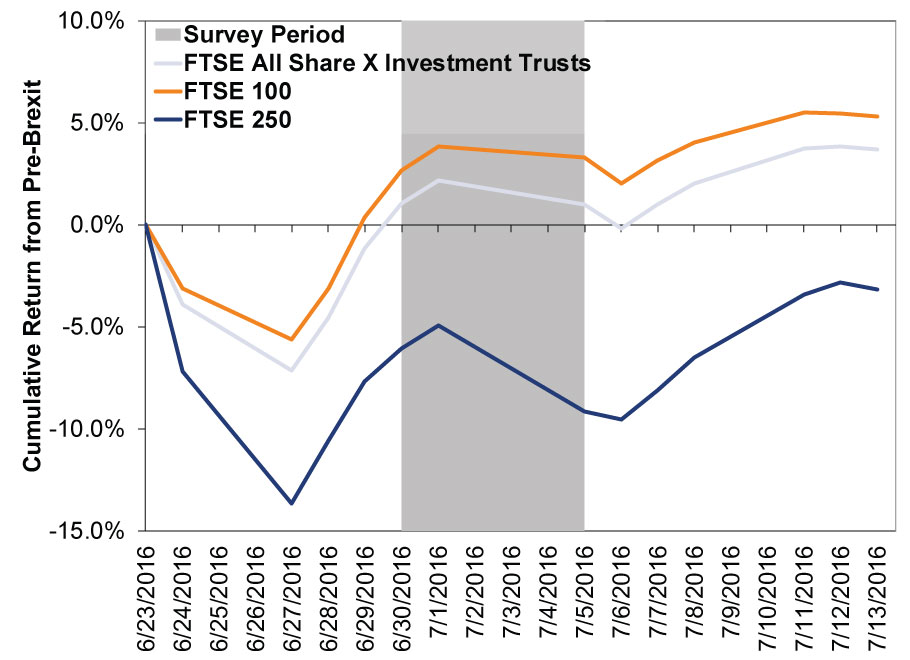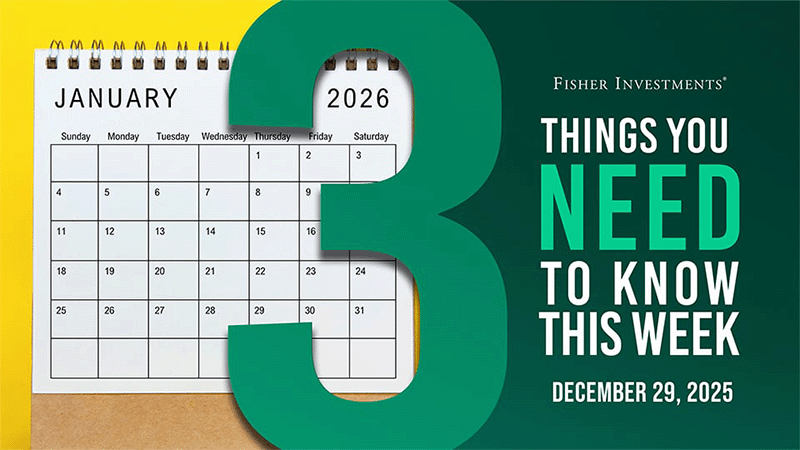Personal Wealth Management / Market Analysis
More Reasons Than Usual to Doubt UK Consumer Confidence Data
British consumer confidence plunged post-Brexit, but you should approach these data skeptically.

These shoppers in Bath look plenty confident. Photo by Matt Cardy/Stringer, Getty Images.
In the wake of last month's surprising "Leave" victory in the UK's referendum on EU membership, many pundits, policymakers, politicians and media types are speculating the British economy will be quite negatively impacted. Understandable, given this follows a particularly acrimonious campaign in which "Remain" proponents linked a "Leave" vote to a recession. (Unwisely, as some economists have noted.) Now, with the results known, many suggest the data will confirm these suspicions-and are pointing to consumer confidence surveys conducted by GfK and YouGov as evidence supporting their case. Some even suggest the Bank of England was wrong to hold off on cutting rates, largely based on these data. A suggestion: Don't buy this at face value. Consumer confidence surveys rarely predict actual behavior. What's more, this one has a huge asterisk rendering it even less valuable than the norm.
Globally, there are many different attempts to tabulate how investors "feel" about the economy, thinking this may quantify what a Keynesian would call consumers' "animal spirits" (what classical economists less colorfully call "confidence"). The theory holds there is an aspect to economic behavior and output that isn't purely rational and is influenced by the current zeitgeist-and that theory I buy without any question. As such, many different organizations attempt to survey consumers to try and home in on how they're feeling-in the US, The Conference Board and University of Michigan publish surveys; in much of Europe, GfK and other research organizations. They ask consumers about their economic outlook; how they feel about their job security; plans for major spending and more.
Now, the trouble is, feelings are really, really squishy, and there is no real evidence we have the decoder ring allowing us to tabulate feelings in a way leading to actual insights. They are not, by any stretch of the imagination, hard "data." They are volatile-and heavily influenced by things that have just happened. This is a behavioral trait at work-"recency bias," the viewpoint that events that just occurred are likely to persist. It is part of humans' innate need to find or seek patterns.
Economies (and, of course, markets) don't operate that way. And, ample research-including work by my boss, Ken Fisher-has long shown consumer confidence is at best a coincident indicator, one heavily influenced by recent stock market action. It doesn't predict. It measures how a selected group of people felt about what was going on around them at the specific time frame they were asked. Those polls very often do not reflect what consumers do later. As I wrote in this article from TheStreet.com in 2011, you should always take conclusions based on confidence surveys with a grain of salt.
But it's worse this time. The survey most are talking about now-GfK's "Brexit Special" Consumer Confidence gauge-showed UK consumer confidence fell eight points to -9. Now that read isn't particularly negative by historical standards-as Exhibit 1 shows, GfK's survey suggests British consumers are a relatively glum bunch indeed. But an eight-point decline is the largest in a single month since December 1994, and a drop matched only six times in the gauge's entire history.[i] That is spurring headlines and chatter.
Exhibit 1: GfK UK Consumer Confidence Index Level

Source: FactSet, as of 7/14/2016.
Now, the glum readings from 2009 - 2014 should tell you this gauge isn't exactly a window into actual economic output, stock returns or consumer behavior. But this isn't the only reason to think that big post-Brexit plunge is dodgy data.
You see, GfK commissioned this survey specially. To try to capture the impact of the vote, it tasked its survey takers with hitting the streets for the period June 30 - July 5. That is the range of the survey, which covers only four actual business days and one week in total. GfK's consumer confidence surveys are ordinarily based on two weeks' worth of data-meaning a typically narrow snapshot of how folks felt at a moment in time is even more narrow.
Since consumer confidence surveys often show heavy correlation to recent stock market action, it isn't surprising the survey showed a drop. While we can today point out that markets haven't been wildly hampered by Brexit, that was much less clear during the short survey period. Exhibit 2 shows the cumulative return of three gauges of British stocks (the FTSE 100, FTSE 250 and FTSE All-Share Excluding Investment Trusts) since June 23's close-before Leave's win was known. The survey period is shaded.
Exhibit 2: GfK's Survey and Stock Market Action

Source: FactSet, as of 7/14/2016. FTSE 100, FTSE 250 and FTSE All-Share x-Investment Trusts with gross dividends, 6/23/2016 - 7/13/2016.
With the survey conducted closer to the volatile initial reaction, it's far from surprising that consumer confidence nosedived. Especially when you consider the media was wallpapered with negativity and shrieking headlines throughout.[ii] It would be interesting to see how different this would look if the survey covered its usual two-week period, given the rebound and the media's increasing focus on other matters like the shift to the Chilcot Report on July 7. Alas, data from that period aren't available. (And even if it were, remember, consumer confidence isn't predictive.)
There is actually no economic data presently available substantiating the fear of a Brexit-induced recession. Won't be for quite a while. We don't even have June data yet, and those would only show a week's worth of influence. July would be the first full month reflecting Brexit's impact. Could a recession happen? Sure, I guess. But it is far from assured, particularly considering the fundamental relationship between Britain and the EU is unchanged right now, and won't change for a considerable period of time. About the only thing these confidence surveys show is that consumers were understandably uneasy for a very brief moment in time right after the vote. Whether that has any bearing on where confidence, spending or the British economy head from here remains to be seen. But, then again, markets' resilient rise since the initially sharp drop gives you reason to doubt that theory, too. This more telling metric of future economic conditions shows little material sign of future economic trouble.
If you would like to contact the editors responsible for this article, please message MarketMinder directly.
*The content contained in this article represents only the opinions and viewpoints of the Fisher Investments editorial staff.
Get a weekly roundup of our market insights
Sign up for our weekly e-mail newsletter.

You Imagine Your Future. We Help You Get There.
Are you ready to start your journey to a better financial future?

Where Might the Market Go Next?
Confidently tackle the market’s ups and downs with independent research and analysis that tells you where we think stocks are headed—and why.





